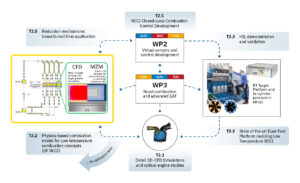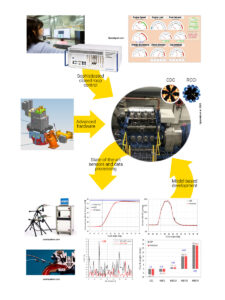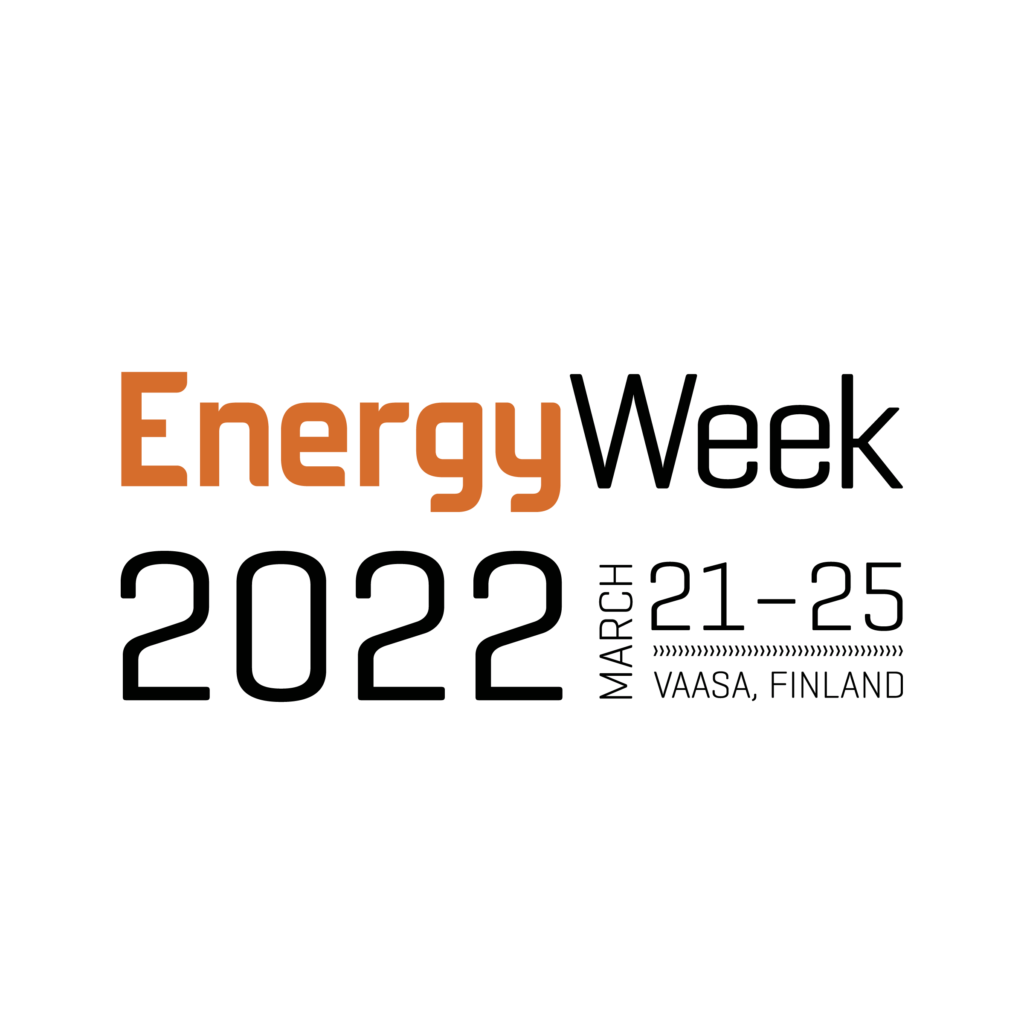Clean Propulsion Technologies project is participating in The Research Exhibition of Energy at #Energyweek 2022 with two project-themed posters: Towards fully predictive engine-modelling in Clean Propulsion Technologies presented by Saana Hautala and Aneesh Vasudev and Our goal: a clean, green, ultra-efficient marine engine with RCCI combustion presented by Michaela Hissa and Jeyoung Kim. Welcome to discuss with our researchers in the Art Hall (Vaasa City Hall) at 16-18 on Tue 22.3.
Poster theme: Towards fully predictive engine-modelling in Clean Propulsion Technologies
In the Clean Propulsion Technologies project, the development of clean and efficient, marine and off-road propulsion systems are facilitated by state-of-the-art engine modelling toolchain. Specifically, WP3 ‘Novel combustion and advanced aftertreatment’ builds up an ultra-low emissions large-bore marine Reactivity Controlled Compression Ignition (RCCI) engine, the calibration, and control of which is supported by the modelling toolchain. This encapsulates a fast and predictive multizone combustion model (developed in T3.2 ‘RCCI control-oriented model’) coupled to a detailed 1D air path + fuel path + aftertreatment model (build in T3.5 ‘Engine – aftertreatment model coupling’). Thus fashioned, the simulation tool provides results of key performance indicators within 5% error margins to an analogous high fidelity CFD model, while doing so within a couple of minutes. This will enable time and cost effective developments of next-generation clean and efficient flex-fuel engines.

Poster theme: Our goal: a clean, green, ultra-efficient marine engine with RCCI combustion
As the marine and off-road sectors seek cleaner, greener energy sources, the goal of the Clean Propulsion Technologies (CPT) project consortium is to establish the Finnish powertrain industry as a global technology leader by creating a common vision and sustainable business solutions. This involves developing novel combustion concepts and advanced aftertreatment systems. The poster describes our work to demonstrate viable low-temperature reactivity-controlled compression ignition (RCCI) in a mid-speed, large-bore marine engine.
The engine measurements are demonstrated at the University of Vaasa’s VEBIC engine laboratory. It has a Wärtsilä W4L20 marine diesel engine, that is modified to accept gaseous and liquid fuels using low-temperature RCCI combustion.
The poster gathers all modifications that are required to convert a diesel engine to use RCCI combustion. For example, hardware modifications include engine components such as cylinder head and liner, piston, multiduct, fuel injector, and exhaust piping. Additions include a fuel system for gaseous fuels and pilot fuel, electro-hydraulic valve actuator (EHVA), and updates for data acquisition system and sensors. Huge focus is directed to engine control and safety functions that are broadened to suit gaseous fuels. Engine control is more challenging with different combustion phenomena and more complex systems. Other modifications focus on a data acquisition system with high-frequency signals, real-time data analyzing with a new post-processing capability.

Meet the presenters
Saana Hautala is a Project Researcher at the University of Vaasa. She holds an M.Sc. in Energy Technology and her main areas of research are 1D engine modeling and simulations. In the Clean Propulsion Technologies (CPT) project, she is the primary resource for Task 3.5.
Aneesh Vasudev works as a Project Researcher at the University of Vaasa. He holds an M.Sc. in Mechanical Engineering and his main areas of research are Advanced ICE and Energy Technology. His role in CPT is in WP3, heading Task 3.2.
Doctoral student Michaela Hissa has worked at the University of Vaasa since 2016. She holds an M.Sc. in Energy Technology and her main areas of research focus on auto-ignition and in-cylinder combustion of alternative fuels in off-road and marine diesel engines. In CPT, she works as a project researcher in WP3 (Novel combustion and advanced aftertreatment) and as Task Manager in Task 3.3 ‘Mid-speed RCCI engine demo’.
Project researcher Jeyoung Kim started working at the University of Vaasa in 2021. He holds an M.Phil in Mechanical Engineering and B.Sc in Automotive Engineering. His main areas of research are advanced combustion, alternative fuels (low or zero carbon fuels), and boosting system. In CPT, he works as a project researcher on Tasks 3.3 ‘Mid-speed RCCI engine demo’ and 3.7 ‘Advanced high-speed engine’.




















